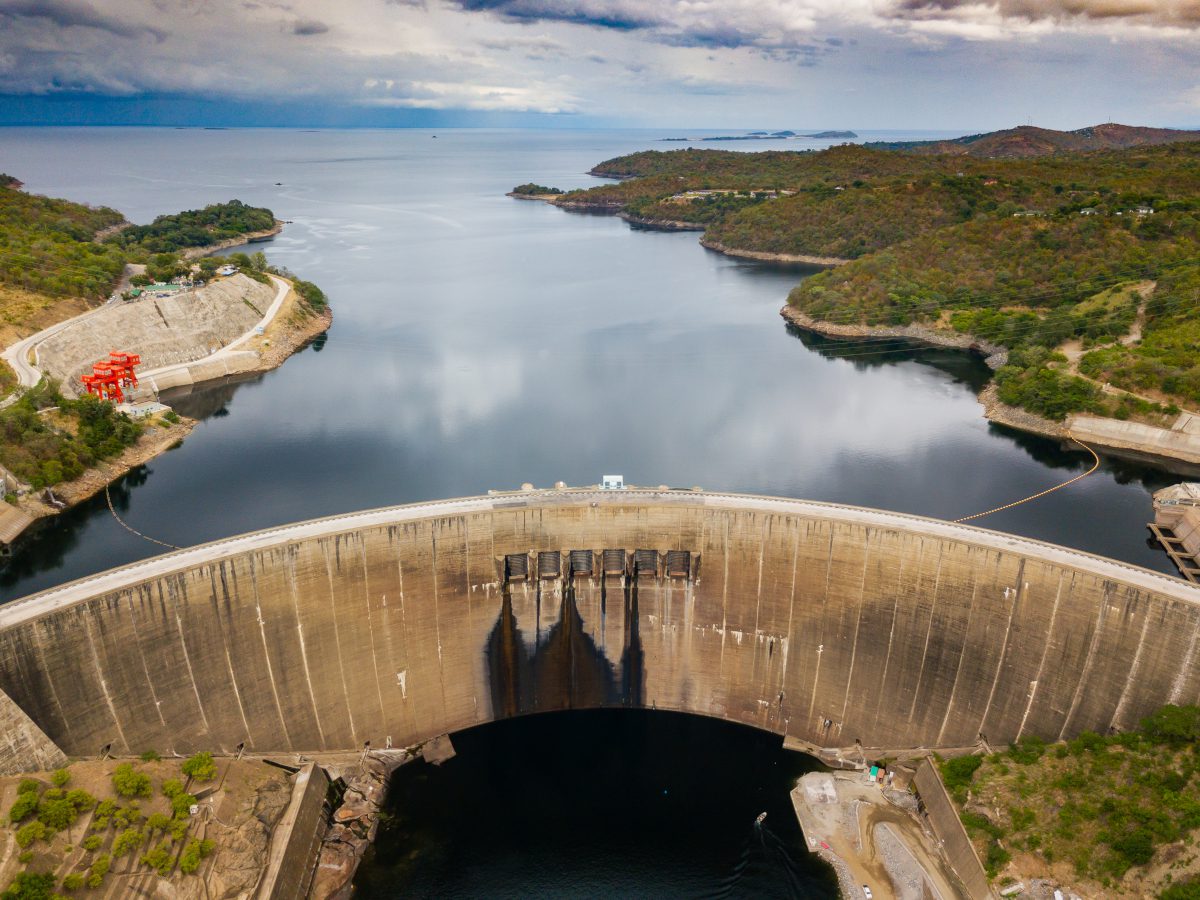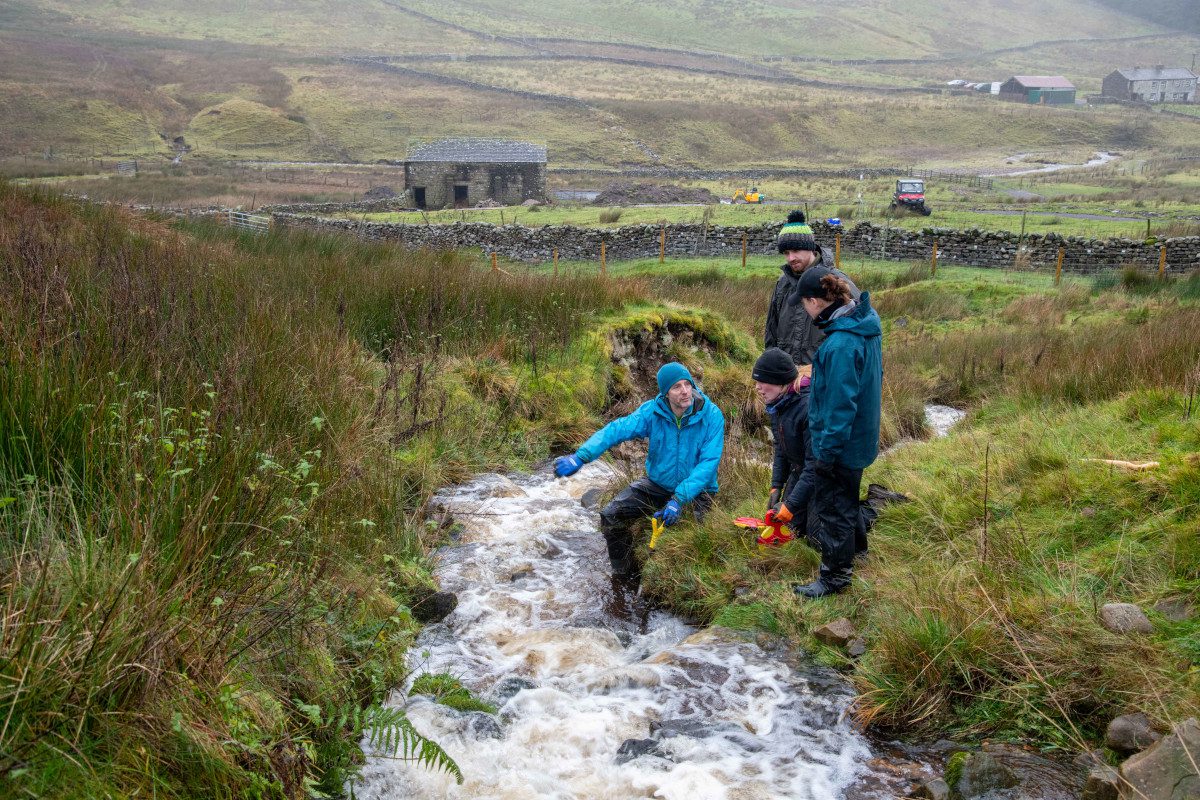As interest seemingly grows in geoengineering as a strategy for tackling global warming, the world’s largest association of Earth and space scientists has launched a putative “ethical framework” intended to function as a guide to responsible decision-making and inclusive dialogue.
The report, facilitated by the American Geophysical Union (AGU) and advised by a global panel of experts, says any research into large-scale interventions in Earth’s climate system must be grounded in sound ethical principles so society can make informed choices about whether to deploy them. It warns that the unintended consequences of large-scale deployment are largely unknown.
“Climate change requires immediate action, and our most urgent, non-negotiable priority must be to tackle the root cause, carbon emissions,” said AGU President Lisa J. Graumlich. “But as pressure grows to supplement emissions reductions with active, large-scale intervention in Earth’s climate system, we must ensure that research is done in ways that are inclusive, representative and just, carefully considering risks and benefits.”
“We all live on this one planet, but solutions cannot be one size fits all,” said Carlos Nobre, a senior researcher at the Institute for Advanced Studies in São Paulo, Brazil, and member of the Ethical Framework Advisory Board. “Global communities have unique challenges and vulnerabilities. When we contemplate how to address the existential threat of climate change, it is imperative that we do so by centering ethics. This framework helps lay the foundation for effective collaboration and partnership.”
The report, Ethical Framework Principles for Climate Intervention Research, released today, seeks to establish a set of globally recognized ethical principles to guide research, funding and policy proposals, drawing on precedents developed to guide research around other emerging fields with unknown consequences, including ethical practices for biomedical research and genetic engineering.
In the 2015 UN Paris Agreement, the world’s nations pledged to pursue efforts to limit global temperature rise to 1.5 degrees Celsius. However, global emissions are still increasing, and every additional fraction of a degree will see more severe storms, floods, heatwaves and other climate impacts and increase the risk of triggering catastrophic tipping points such as the Amazon rainforest transforming into dry savannah or the collapse of the Greenland Ice Sheet.
Climate interventions, also known as geo-engineering or climate engineering, are deliberate, large-scale attempts to alter the climate system in a way that halts, slows down or reverses global warming. Climate intervention technologies and methods include:
- carbon dioxide removal, which aims to remove greenhouse gases from the atmosphere and store them, using approaches such as reforestation or increasing the ocean’s capacity to absorb carbon;
- solar radiation modification, which aims to reduce the amount of solar radiation absorbed by Earth, such as approaches that increase the amount of sunlight reflected from clouds or space sunshades;
- and emerging technologies and research, including those aiming to preserve ice sheets and restore sea ice and permafrost.
“Climate intervention must not replace greenhouse gas emissions reduction,” said AGU Interim Executive Director and CEO Janice R. Lachance. “Yet there is robust discussion and debate on whether it should become part of a comprehensive strategy to slow warming, address legacy carbon emitted over the last century and get us back on track with global temperature targets. It is AGU’s privilege and responsibility as a leader in climate science to advocate for responsible pursuit of knowledge.”
The framework has been developed over a two-year period, under the guidance of an advisory board of more than 40 international experts from a wide range of disciplines, with extensive public consultation worldwide. It reflects contributions from hundreds of scientists, policymakers, ethicists, government agencies, non-governmental organizations, the private sector and communities that could be disproportionately affected by climate change interventions. It proposes that all new research plans, funding decisions and policy proposals should meet five key principles:
- Responsible Research. Climate intervention research should not be presented as an alternative to emissions reductions. Researchers should provide a clear, public justification of their activity. They should not only assess its direct risks but also the physical, environmental and social consequences if it were scaled.
- Holistic Climate Justice. Before starting an activity, researchers should consider whether it would shift climate impacts from one group to another, as well as consider its impact on groups experiencing social, economic, climate and environmental injustices, on future generations, and on nature and biodiversity.
- Inclusive Public Participation. Researchers should have fair and inclusive processes to identify groups that may be impacted by the activity and include them in discussion of the purposes and design of the research. They should secure the free, prior and informed consent of any Indigenous Peoples likely to be affected.
- Transparency. Public and private funding of climate intervention research and experimentation should be completely transparent. Researchers should handle data responsibly, report on the nature of the science involved and document the decision-making process from start to finish. They should clearly report any negative results.
- Informed Governance. Where technologies have significant risks, funders should require research proposals to be reviewed and approved by an independent body. Activities with higher risks or at larger scales should have greater scrutiny. Researchers should be accountable to a representative set of public institutions and stakeholders at scales relevant to the impact of the research.
“Communities need to be heard on decisions that affect them,” said project lead Billy Williams, AGU’s Executive Vice President, Diversity, Equity and Inclusion. “Though climate change is a risk shared by all Earth’s people, the weight of climate consequences is not carried equally. As we consider technology to counteract warming, it is essential that we do not add to that unequal burden.”
The framework applies to all types of climate intervention and covers lab research and computer modeling as well as activities undertaken in the field. It is designed to be flexible enough to be adapted to the needs of diverse contexts and actors and capable of evolving as society’s understanding of climate risks and climate intervention technologies develops.
AGU intends for the framework to drive discussion within the broader community involved in and affected by climate intervention research, policy and investment and prompt the development of norms for ethical and responsible research practices.
“AGU and the contributors of this work strongly encourage all relevant actors, including researchers, funders and policymakers, to embrace these ethical principles when considering or undertaking activities relating to climate intervention research,” says the report.


















